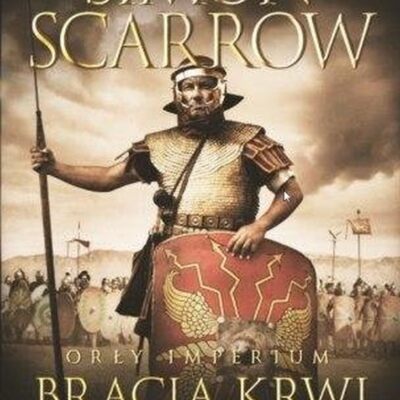The book “Eagles of the Empire. Volume 13. Brothers in Blood” by Simon Scarrow is another part of the adventures of Quintus Licinius Cato and Lucius Cornelius Macro, who this time must face a serious conspiracy that may lead to the defeat of Britain by Rome.
The main characters of the novel are the prefect of the camp Katon and his subordinate centurion Macro. They are an example of a true “barracks friendship” that was born during military service in the northern areas of the Roman Empire. Unexpectedly, in this cycle, both of them become embroiled in a political game between the influential freedmen of Claudius: Pallas and Narcissus. The game is about the throne of Rome and the possible future succession of Nero, the emperor’s adopted son. The freedmen, faced with a breakthrough moment for the fate of the empire, conduct extremely dangerous activities aimed at weakening the other side, and indirectly the empire itself.
Rome, which began the conquest of Britain in 43 CE, in 52 CE he has to contend with barbarian tribes in the west and north of England. An attempt to stabilize the situation in the region becomes practically impossible in the face of the rule of the charismatic leader of the Catuwelauns – Caratacus, who, despite the defeat in battle, still remains an inspiration for many barbarians and threatens to break out a war with the Brigands (according to Tacitus, it was the most powerful tribe in Britain).
The plot of the book is in line with historical realities. The author describes the realities of this period in a very interesting way and justifies how much the person of Caratacus was a threat to Rome’s further expansionist plans. The author also shows us how the whole situation looks from the other side, from the side of the tribes of Britain who fought for freedom and their independence. He presents this issue perfectly at the time of the conversation between the captured Caratacus and Cato.
We can also see how complex and complicated politics was in ancient times. It makes us understand how much of our contemporary affairs can be controlled by people with power and influence, and we don’t even realize it. The freedmen’s private interests intersect and lead to an internal conflict that threatens over 10 years of conquest of Britain.
The book is written in a very interesting and engaging way. I must admit that this part focuses more on scheming and political games, but the reader will still follow the course of events with bated breath. With a clear conscience, I can recommend this book to anyone who wants to spend their free evenings in the not entirely tamed Roman Britain of the mid-1st century CE.


